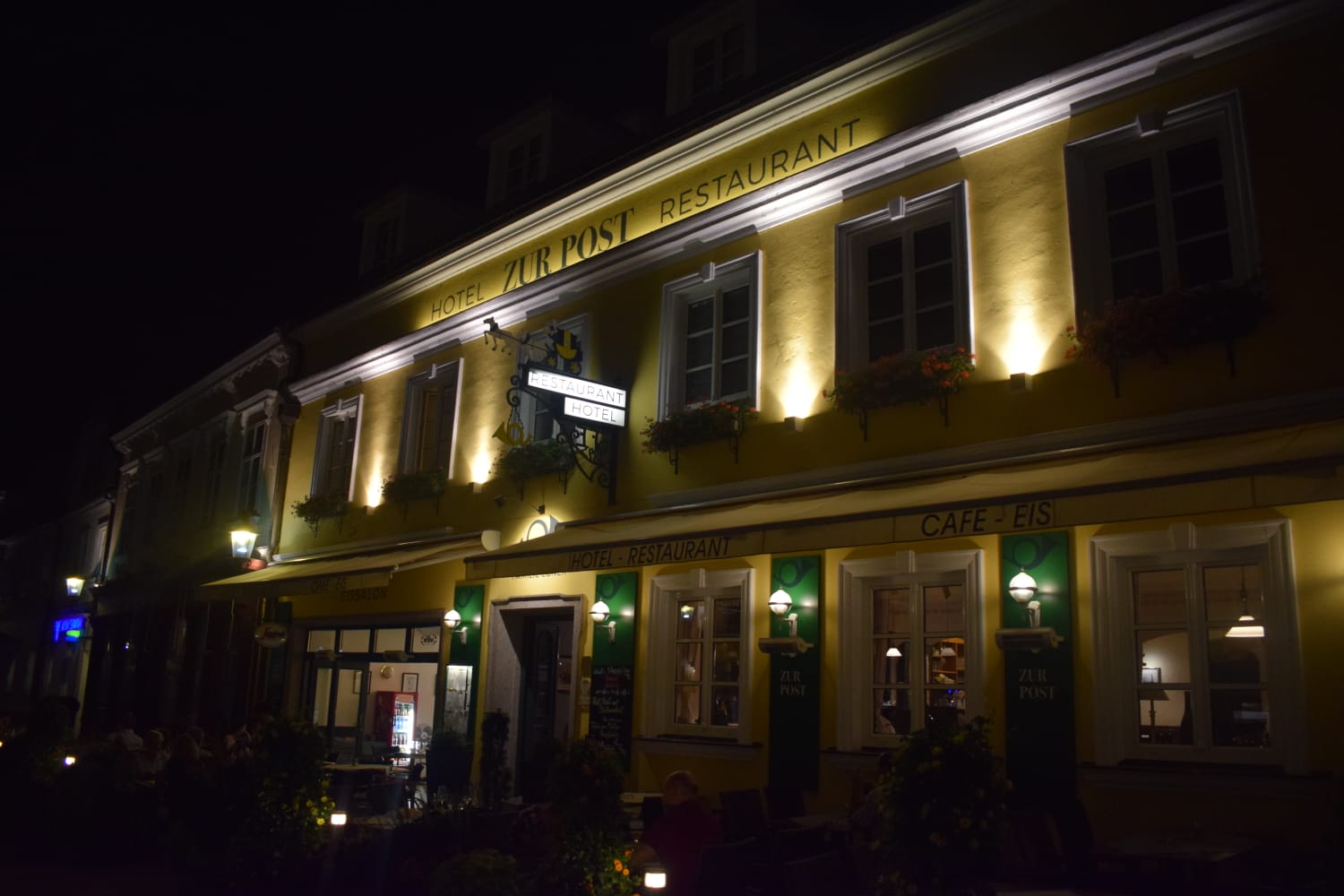
by Nicholas Jenkins | Sep 18, 2019 | Food and Drink, General
Many people have inquired from me how to go about life without being blown-over with awed appreciation. To this I invariably reply that one should start by not asking for restaurant recommendations from Cedric Conboy. You see this mutual friend of ours has an extraordinary knack of finding eateries that make one’s jaw hang open. I don’t suppose that Cedric has ever visited Melk, yet when Dad and I turned to him for a place to have dinner in the charming little town during our recent cycle ride along the Danube, he came up with the goods as if he were a lederhosen-wearing local named Friedl.
Hotel zur Post is a delightful little haunt with a stunning view of the Benedictine monastery. It’s traditional, family run, with excellent quality to match. Father and I kicked off the proceedings with a glass of the local beer which went down very nicely after a long day’s cycling, believe me. After this we ordered a bottle of Veltliner and eagerly awaited our mains.

The Paterfamilias had ordered a sumptuous dish of chicken breast with a tomato, basil and mushroom sauce complete with small dumplings. By the look of things he enjoyed this greatly. Which is the least that can be said of what I thought about my exquisite main: taglioni in a truffle sauce with Danube crayfish.

If I had any great knowledge of food, cooking or indeed even the most basic insight into either, I could tell you why I found it so delicious. But as I don’t, I can only say it was tasty. In fact, it was bloody tasty.

On to the deserts, Pop Jenkins opted for a gooseberry tart for reasons unbeknownst to me. I, on the other hand, judiciously selected the Topfenstrudel, cream cheese strudel, which was very nice. Presumably this had something to do with how the chef prepared it, but I haven’t the foggiest.


We ended the evening with a drop of Apricot Schnapps, or Marillenschnapps, and parted ways with Hotel zur Post on the most cordial of terms. Praise must be heaped on this worthy establishment, as it must be on the man who recommended it.

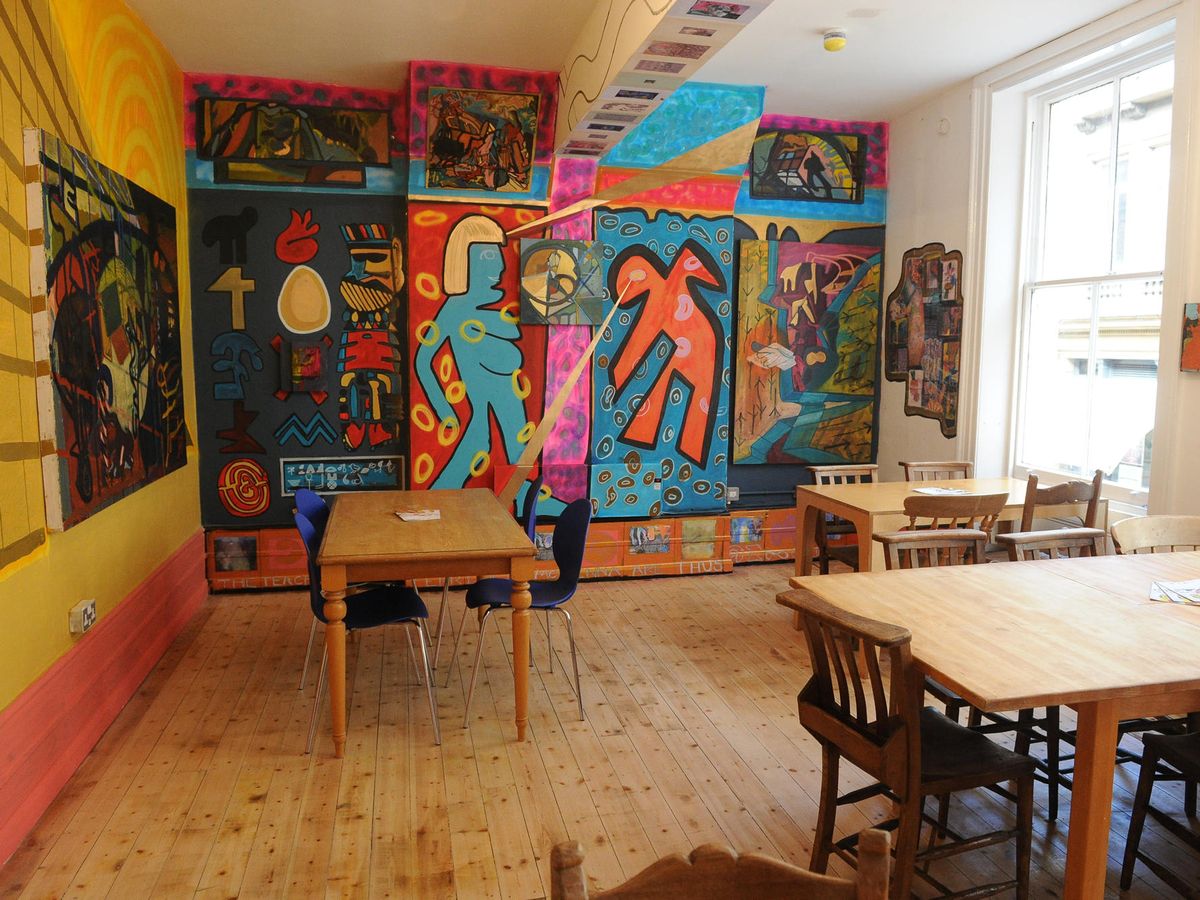
by Nicholas Jenkins | Sep 3, 2019 | Food and Drink, General
Dear loyal readers, I return, but this time exiled to Hull, and surprisingly enjoying it. I suppose it will now become my task to persuade the world that there is more than just the letter e that separates Hull from Hell. But believe me, it is not all Stygian gloom up here, the people are friendly and I have fallen in love with the old town with its cobbled streets and many pubs. One place that has become a bit of a staple for me is the Brain Jar.
The Brain Jar, in case you were wondering, is a little bar near the Minster that serves a variety of drinks as well as a selection of food. I’m afraid owing to being constitutionally boring, I have opted every time for some whiskey, Laphroaig or Talisker Skye usually. But I am sure Cedric’s more adventurous audience will be able to pick something slightly fruitier.
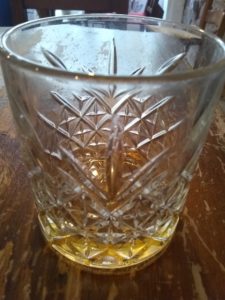
I believe the technical term for this place would be “funky”. The decor is interesting to say the least, complete with a bebosomed banana, and generally there is an atmosphere of hipness that even this perennially uncool reviewer could not help but notice.
As for the food, well that is where it gets special. You see, they serve home-made pizzas here with a choice of toppings. Crispy authentic, and very delicious. The one pictured below has nduja on it. Up until now I had not realised nduja was a thing. Clearly, the royal society for nduja awareness must get their act together. It is quite spicy, so good if you like that kind of thing.
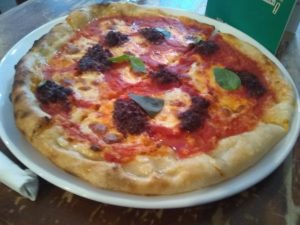
To conclude, as I suppose I ought to, the Brain Jar, is a pleasant find, with a good selection of drinks, great pizza, and “hip” atmosphere. It all just goes to show one can make a heaven out of Hull, a Hull out of heaven.
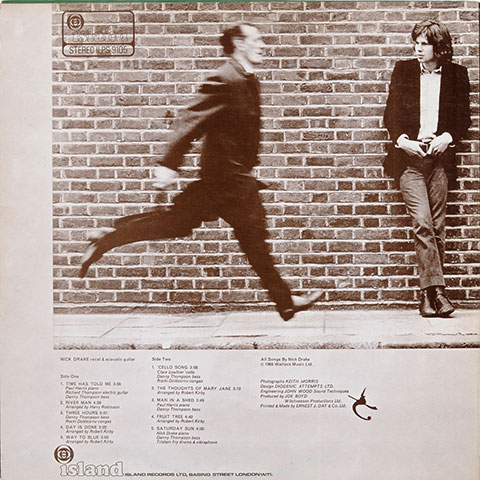
by Nicholas Jenkins | May 31, 2019 | Tunes
On 3rd July 1969, Nick Drake’s debut album, ‘Five Leaves Left’, was released . It sold poorly for the times, sales totalling about 6,000 records. A combination of Drake’s reluctance to tour, bad luck, and perhaps the complexity of the music meant that he was far from an instant hit. It was only after his death, at the age of 26 from suicide, that a substantial following began to grow. As the lines of the penultimate song on the album had so eerily predicted:
‘Fame is but a fruit tree
So very unsound.
It can never flourish
‘Til its stalk is in the ground.’
Fast forward almost half a century to December 2016, a date of considerable less importance to the world (but of tremendous personal significance for myself), and to an Oxfam charity shop in Balham, south west London, when I was first shown a recording of Drake’s music. It was for me an instant hit. A number of things were immediately recognisable in the music, first of all the sensitivity of the Drake’s voice. I had never heard someone sing so softly and yet with such clarity. Secondly the skill and complexity of the guitar playing. Finally there was the poetry of the lyrics. A number of the lines already stood out to me like this one from ‘Time has told me’:
‘Time has told me
You came with the dawn
A soul with no footprint
A rose with no thorn’

Nick Drake (1948-1974)
That day I rushed back home to buy Five Leaves Left on Itunes (remember this was B.C. – Before Cedric, and consequently no Deezer). The album still stands out to me as an all time favourite, which is why I am so grateful for the honour of paying to tribute to it. A number of aspects are worth mentioning besides the enormous talent of Drake himself. The string arrangements are stunning, all completed by Robert Kirby (a friend of Drake’s from Cambridge), aside from the one on ‘River Man’. The supporting musicians, assembled by legendary record producer Joe Boyd, are incredible and the recording itself is superb, thanks in large part to sound engineer John Wood.

Years later, John Wood (left) and Robert Kirby (right) on a documentary discussing their friend Nick Drake’s music and life
I think to give you a glimpse as to why this album is so dear to me, I should discuss some of the songs in greater detail. The opening track ‘Time has Told Me’ is a particular favourite of mine, I have always loved the twangling electric-guitar of Richard Thompson (from band Fairport Convention) on this track, and Drake’s lyrical delivery. The words themselves appear to sum up a love that could not be, and there are some tremendous insights like this one:
‘Your tears they tell me
There’s really no way
Of ending your troubles
With things you can say’
Then there is ‘River man’. Perhaps, the very greatest on this album, and possibly the best Nick ever wrote. It’s in 5/4 time, established throughout by Drake’s faultless guitar line, giving the song its asymmetrical but constant rhythm, like the flow of a river. Composer Harry Robertson provided the string arrangement this time (the young Kirby felt uneasy arranging in 5/4 time). Drake mentioned composers like Ravel and Debussey as a template for the arrangement, and no doubt this influence can be detected by the cognoscenti, but it is also worth mentioning that Robertson was credited as composer on a number of horror films at the time. Perhaps this is in part what gives the arrangement such a haunting feel. The lyrics expand on this atmosphere, with lines like:
‘Betty said she prayed today
For the sky to blow away’
There clearly is a macabre feel to the song, and it’s not surprising that people have interpreted the ‘River Man’ of the title as Charon, the boatman of the Stygian flood that divides our world from that of Hades.
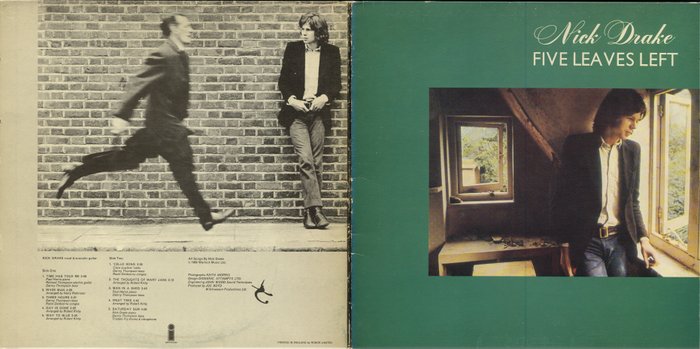
Another favourite of mine is ‘Fruit Tree’. This time the arrangement is by Kirby, who said in an interview that this was just about his favourite he did for friend Nick. I would generally agree (which is a tough call given the high quality of his other arrangements). His use of the oboe and cor anglais in this song is particularly impressive and adds to the wistful melancholy.
Fruit tree has some of the best poetry of the album. Its tempting to read into the words a kind of premonition of the Nick Drake story. A tale of fame that was unsound because it could only truly flourish after his death. Yet when Drake recorded this album we know he was still fairly confident of success. It’s better to see in it a young man, wise beyond his years, steeped in the poetry of the English Romantics and French symbolists, making a universal statement, with language such as this:
‘Safe in the womb
Of an everlasting night
You find the darkness can
Give the brightest light.
Safe in your place deep in the earth
That’s when they’ll know what you were really worth’

The Drake family gravestone in Tanworth-in-Arden, Warwickshire, both parents outlived their child
Great art has the power to change us, or so they say. But sometimes with our favourite artists we find they have not changed us, but rather that they have acted as a mirror, reflecting back to us an undistorted image of ourselves. I have found this to be the case with Nick Drake. I do not believe I have changed after listening to his music, rather I believe it has always had such a strong effect on me precisely because it has spoken to me as I am, not as I might be. All art is a game at communication, and its aim is the same no matter the medium: to let us know we are not alone. For myself and many others since his tragic early death, Drake’s music has helped us feel that we are not alone. I hope that this article will encourage someone new to discover Nick. Perhaps, they will find as I have found, that he is:
‘a rare, rare find
A troubled cure
For a troubled mind’.

by Nicholas Jenkins | May 22, 2019 | Food and Drink
And so it was time for us, on the eighth day of our holiday, to descend upon the town of Trebinje in search of decent grub and (in Cedric’s case) a respite from all the driving. As we made our way down the long and winding path to our destination it was fair to say there was a healthy amount of scepticism regarding the spot for lunch selected that day. The road was not exactly uncluttered with detritus and it was rather narrow in places. But when we eventually arrived at Motel Studenac all doubts were immediately caste aside as the magnificence of the place dawned on us.

Motel Studenac is a restaurant, spa and hotel situated by the cooling banks of the river Trebišnjica. The photos will tell the story better than any words I might be able to marshal into place, but, nevertheless, I should say this was a truly picturesque setting. Complete with a farm for fresh fish within the beer garden. One does not always appreciate the chance to ogle at a dish alive and swimming before eating it, but this time I did, realising just how fresh the fish would be.

Before we go onto to discuss the food, I think a short aside regarding the geographical location is warranted. Trebinje is a small town in the Republika Srpska, the autonomous region of Bosnia and Hercegovina controlled by the Serbs. Bosnia is one of Europe’s poorest countries, with the world’s highest youth unemployment rate, burdened with memories of the violent ethnic conflict of the 1990s, and struggling with the societal illnesses of widespread corruption and nepotism. Yet it is also a country with tremendous natural beauty (mountains, rivers, forests and waterfalls), and a people who are charming in their own mad and wonderful way. It is well worth visiting, but not for the driving!
Now back to the restaurant. To start with, I ordered the veal broth (called a čorba in Serbian). This was exquisite and I was provided with a healthy amount of it, with the option of topping it up. Louise opted for the fish soup which was also tasty. I cannot for the life of me, remember now what Cedric ordered. Perhaps he will forgive me. The table was provided with a large supply of fresh bread, which I always think is the mark of a fine establishment.
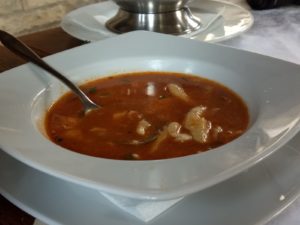
For my main course, I went for the trout. It was superb, and although I was unable to remove Schubert’s “die Forelle” from my head or perhaps in part because, I thoroughly enjoyed the experience. Cedric opted for the smocked neck with soft cheese instead. His excuse was that he did not like fish! I must say I was shocked to find that the man who had driven me with astonishing levels of care and skill across three countries (through some of the most shocking conditions for driving known in Europe, I might add), had, despite all his manifold talents and virtues, the mind of a fussy four year-old. But then again it was his loss. He was fortunate that the smoked neck was also excellent.
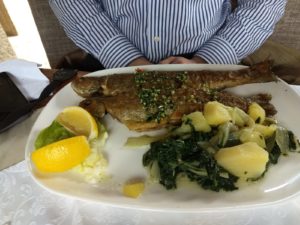
I’m afraid I’m not going to discuss the food anymore. This is partly because my meagre descriptive abilities will always fail to capture accurately the pre-eminent qualities of the food, but mostly because I have forgotten what else we ordered. I’m pretty sure we all had three courses. That will put into context the next fact, the meal cost us 90,80 Bosnian Convertible Marks. In other words, just under 40 squid. I’ll give you a few moments to recover from that extraordinary piece of information.
At the start of the holiday, our friend, and intellect, Louise, quoted from Keats, saying ‘Oh for a life of Sensations rather than thoughts’. I cannot say that this sentiment sits terribly well with me, having been brought up since early childhood to praise above all the intellectual life and mistrust all sensual indulgences. Still it must be said that the sensations enjoyed at Studenac were superb, and my thoughts were few in number, as I relaxed on that sunny spring afternoon beside that cooling river.

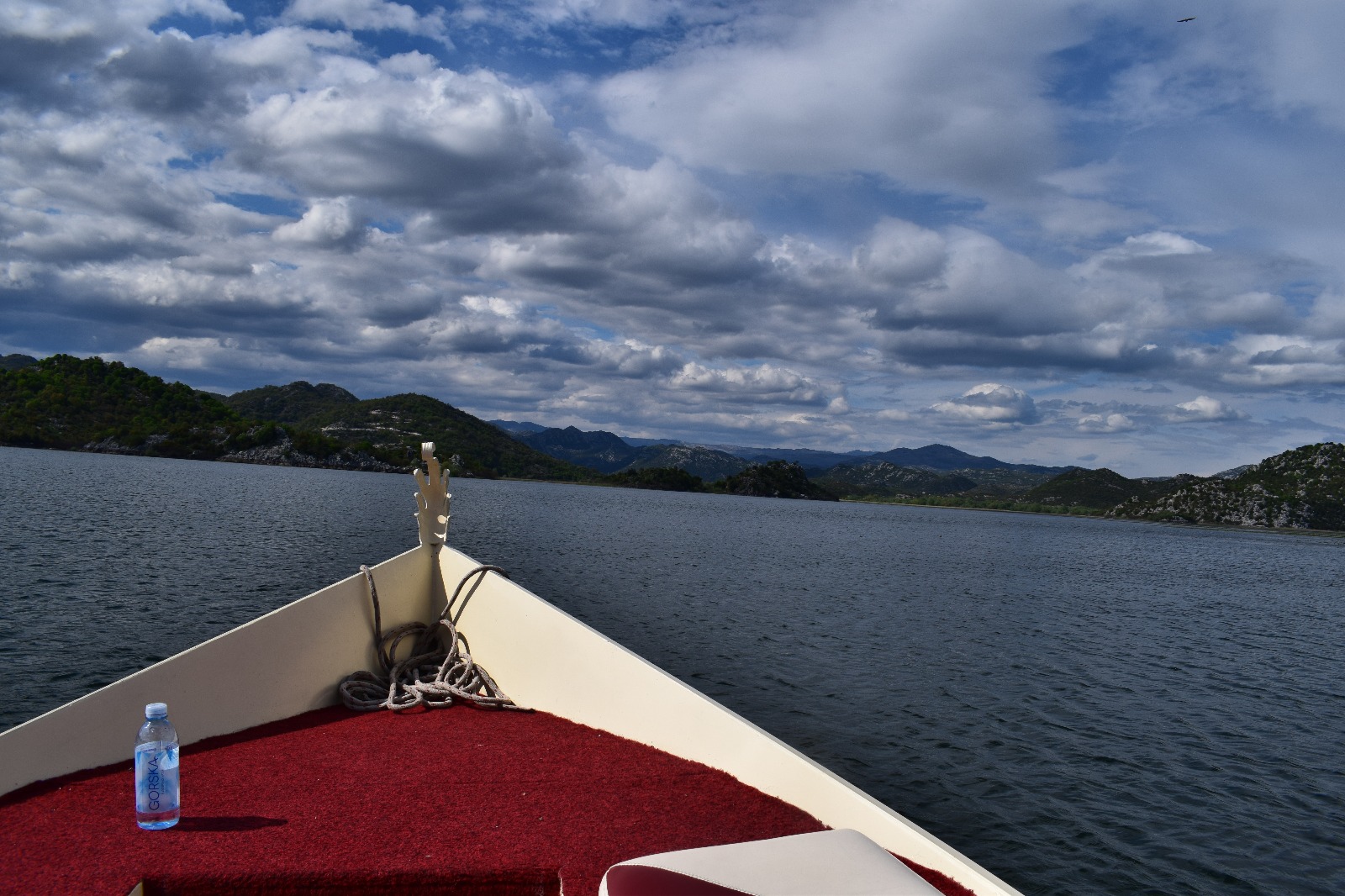
by Nicholas Jenkins | May 16, 2019 | Goods and Services
Random Montenegrin (and no friend of the Boat Milica team): Do you speak English?
Cedric Conboy: Not a word.
It is fair to say that Montenegrins have many admirable attributes, but one of them does not appear to be an appreciation for the finer points of English wit. This exchange, together with others, helped Cedric earn the epithet “Pičko” (or perhaps pička, I may have misheard) amongst the vultures who congregate by the banks of Lake Skadar selling boat tours. I will leave it to the discretion of Cedric’s audience to decide whether they wish to research what “Pičko” means in the local dialect, but needless to say it isn’t the sort of thing one ought to start calling one’s grandma.
Luckily we already had a tour booked, with Boat Milica Tours, run by a local family. Jelena the wife does the talking in English, her husband Andrija (born in Virpazar on the banks of the lake) steers the boat and provides comment in Montenegrin, and their children help out when they can. One cannot but heap praises upon this family team. Jelena is an excellent tour guide, her knowledge of the area is superb, she is friendly and honest, and knows just when to provide information and when to leave her guests to sit back, relax and enjoy the lake. I was particularly touched at the effort the family made to supply us with coffee.

Both husband and wife, clearly have a great love for nature. Andrija, for example, was keen to point out the different kinds of birds that live on the lake, which Jelena translated for us. As Jelena explained the lake has been kept free of the development, which has to some extent crowded the bay of Kotor, meaning it remains a tranquil spot, perfect for lovers of nature.
One of the highlights of the tour was our visit to the Monastery at Kom, built between 1415 and 1427. An orthodox monk, who we met, lives on the island Monastery (in the periods of drought it is actually connected to the land). I was blown away by his warm hospitality. He provided us with food and homemade “Rakia” (rakia or rakija, the word meaning spirits, is synonymous with the Balkans, comes in many varieties and is typically distilled at home). I was moved beyond words by this welcoming, as I felt at last a real part of the Balkans.

This tour was an incredible find by Cedric and I recommend it to anyone. It was my favourite part of an epic trip which I will never forget. By the end of the holiday, my only regret was that we could not continue travelling on. One is reminded of the lines from Tennyson’s poem Ulysses, in which the Homeric hero becomes the perfect archetype for the yearning wanderer:
“I am part of all that I have met;
Yet all experience is an arch wherethro’
Gleams that untraveled world, whose margin fades
For ever and for ever when I move.
How dull is it to pause, to make an end,
To rust unburnish’d, not to shine in use!”
























